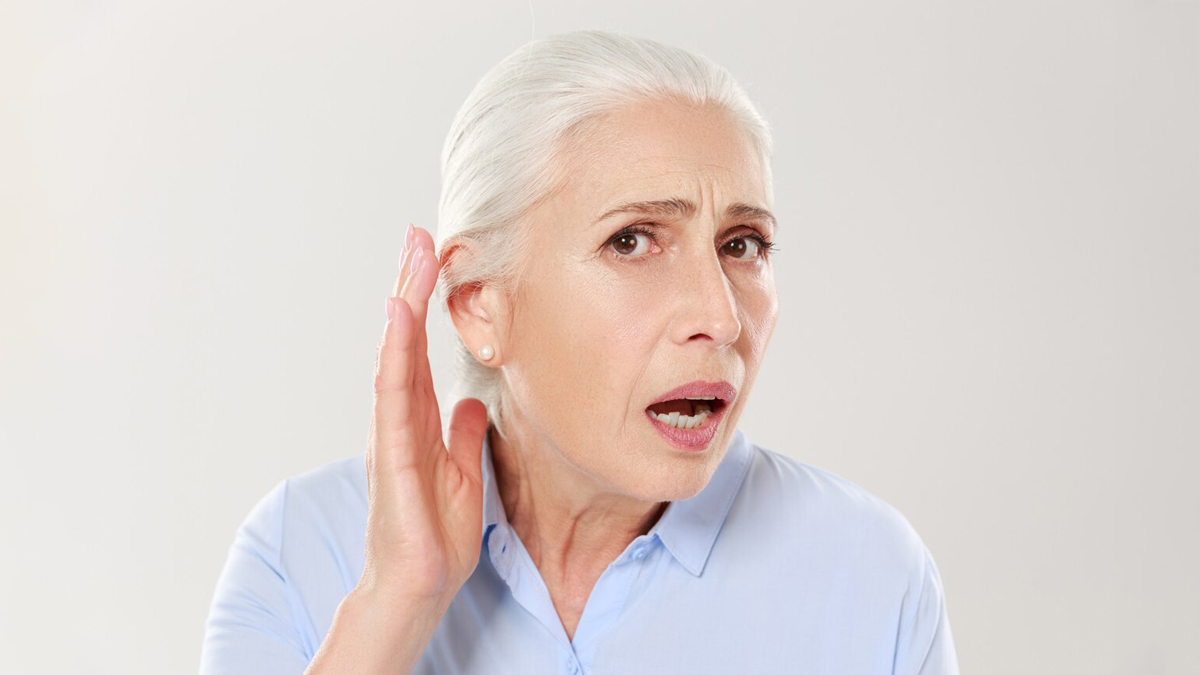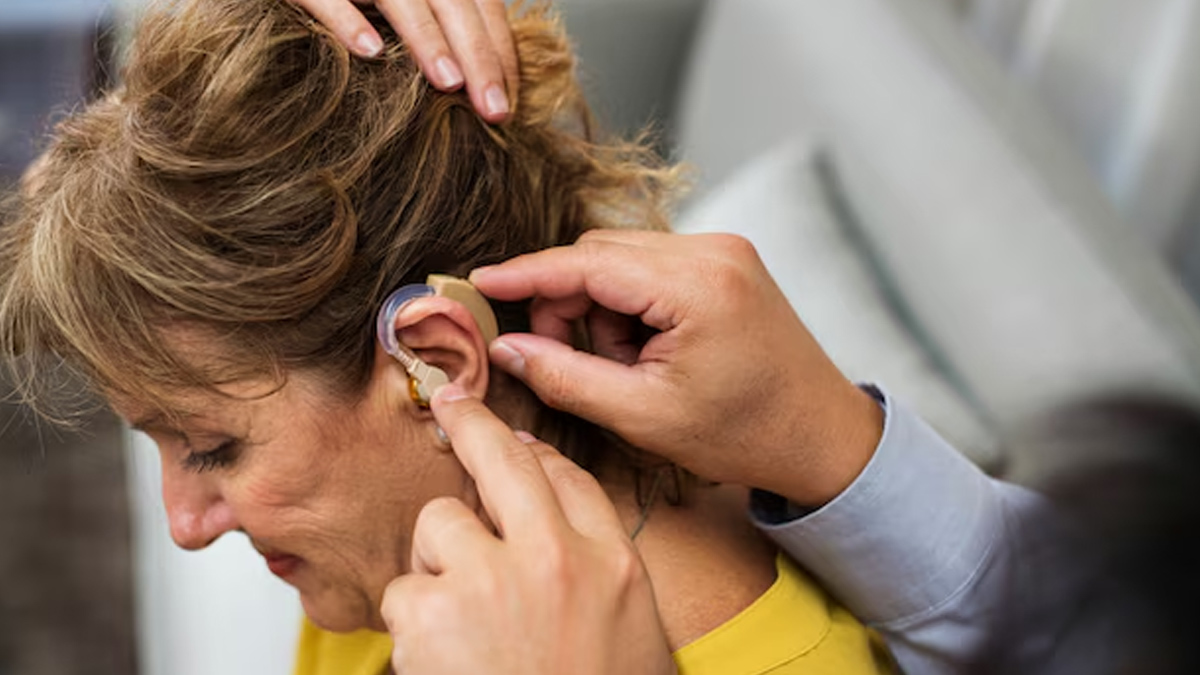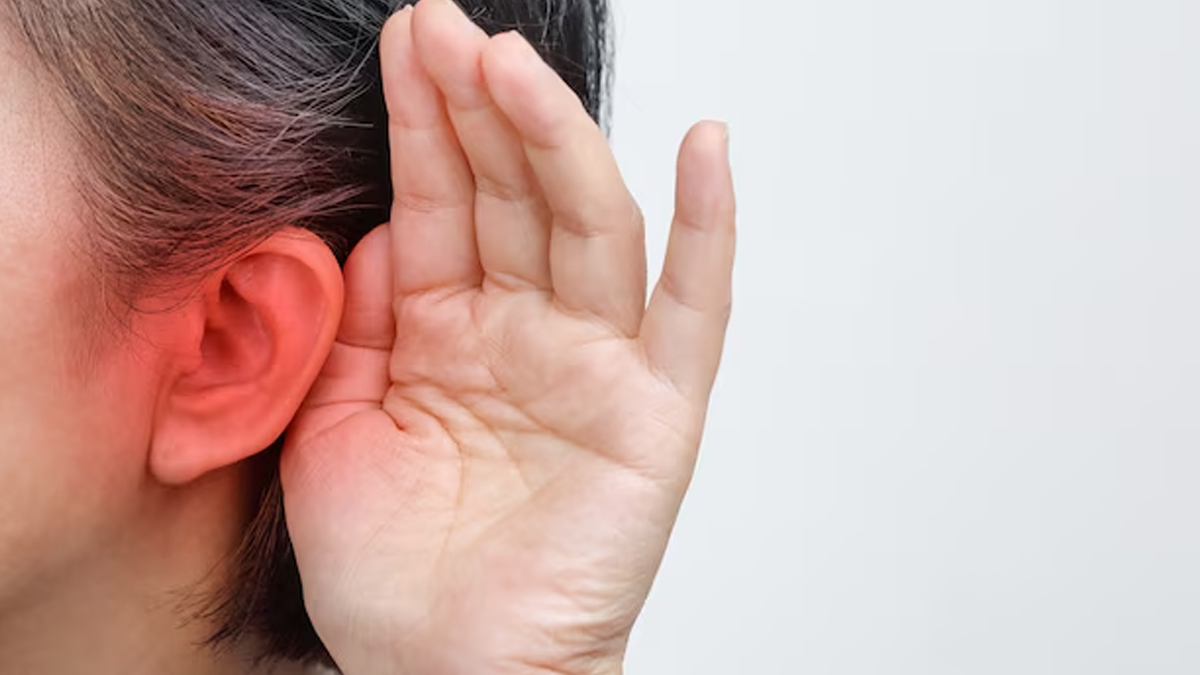
While age-related hearing loss, also known as presbycusis, is common, other factors such as prolonged exposure to loud noise, ear infections, and genetics can also contribute to hearing decline. What makes hearing loss particularly tricky is that it usually progresses gradually, making it easy to miss in the early stages.
Table of Content:-
Many people become hard of hearing long before they realise something is wrong. They adapt to the subtle changes without recognising that their hearing is fading until it becomes significantly noticeable.
To help raise awareness about the early warning signs, the OnlyMyHealth team spoke with Dr Shrekha Komath Padmakshan, Associate Consultant ENT, Fortis Hospital, Kalyan, who shared insights into how to spot the initial signs of hearing loss and why early detection matters for people of all ages.
Also Read: Hearing Loss In Rural India: Expert Lists The Causes, Challenges, And The Way Forward
Needing to Turn Up Volume on Device

It can be tricky to identify gradual loss of hearing, as the signs are often subtle and mistaken for everyday habits. For example, if you frequently ask others to turn up the TV volume or find yourself increasing the sound on your phone or laptop, it might be more than just a habit. These could be early signs of hearing loss, an issue worth discussing with an ENT specialist.
In any case, loud sounds can damage your hearing.
According to the World Health Organization (WHO), the volume of sounds, the duration of listening, and the frequency of exposure to loud sounds all have an impact on hearing. "You can safely listen to a sound level of 80 80dB for up to 40 hours a week. If the sound level is 90 90dB, the safe listening time reduces to four hours per week," the health body suggests.
Frequently Asking People To Repeat Themselves
Until and unless you are in a crowded place or amidst loud surroundings, frequently asking people to repeat themselves can be a sign of deteriorating hearing, Dr Padmakshan highlighted. Unfortunately, it is a common symptom that often goes unnoticed. While it is normal to ask someone to clarify what they said, doing so frequently, even in quiet places, can be alarming.
Trouble Understanding Conversations Over Phone

Phone conversations can never be trusted fully. Many things can be misunderstood and misinterpreted, especially if you have a bad connection. However, if the network isn’t the issue, and you generally have trouble understanding conversations over the phone, it could be a red flag. Difficulty understanding speech over the phone, particularly when voices sound muffled or unclear, can be an early sign of hearing loss. If this happens frequently, it's important not to brush it off and instead consider getting your hearing evaluated by a specialist.
Reduced Clarity Of Speech
Reduced clarity of speech can be a major sign of hearing loss. Individuals with hearing loss may struggle to understand spoken words, especially in noisy environments, because they may not be able to hear certain sounds or frequencies that are crucial for speech understanding. This can lead to difficulties in following conversations and may result in needing others to repeat themselves frequently.
Ringing Sound In The Ear

A ringing sound in the ear, or tinnitus, can be discomforting. It leads to a sound inside your ear that no one else can hear. According to StatPearls Publishing, almost everyone experiences tinnitus at some point in their lifetime. While there can be several reasons behind it, hearing loss can sometimes cause a buzzing, hissing sound in the ears too.
Also Read: What To Do If You Suspect Hearing Loss In Your Child
How To Protect Your Hearing
Protecting your hearing starts with simple daily habits that can make a huge difference. The key is to limit or avoid exposure to loud noises. Some of the steps you can take are:
- Avoid loud, noisy places.
- Turn down the volume of your devices.
- Give your ears a break, especially if you've constantly been exposed to loud noise.
- Use earplugs or earmuffs to fight off the noise.
- Maintain good ear hygiene; clean gently and avoid inserting objects.
- Be mindful about noise levels.
- Get regular ear checkups.
Conclusion
Hearing loss happens gradually and can be overlooked during the initial kind stages. However, if you suspect something is wrong, there is no harm in consulting a specialist and getting your ears evaluated. Additionally, protect your ears by avoiding unnecessary exposure to loud noises and practicing good hearing hygiene to preserve your hearing health.
Also watch this video
How we keep this article up to date:
We work with experts and keep a close eye on the latest in health and wellness. Whenever there is a new research or helpful information, we update our articles with accurate and useful advice.
Current Version
